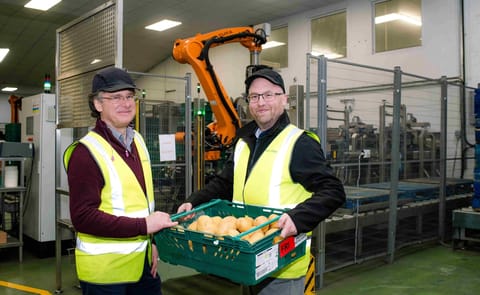The Central Potato Research Institute (CPRI) in Shimla, India's premier potato research institute, has evolved a new technology to prevent conversion of starch into glucose in low temperature conditions, like cold storages. Glucose level in potatoes increases substantially in low temperature, reducing its shelf life and rendering it inedible for diabetic patients.
The CPRI said sugar or glucose levels in potatoes will not rise with the use of this technology. The institute is also getting a patent for this technology, CPRI director Bir Pal Singh told Deccan Herald on Monday. The breakthrough, Singh said, has been evolved purely for commercial. Low-sugar potatoes with a longer shelf life was otherwise not possible, with sugar level rising in cold storages.
Singh said: “This is the first such technology in the country. This will be a boon for the processing industry. Starch in potatoes turns into sugar and this process is accelerated by an enzyme called invertase. We have silenced this process, in fact stopped it, so that the sugar levels don’t increase in potatoes.”
The technology has “great cold chipping attributes,” which controls the rise of sugar level in potatoes. “Transgenic potatoes have reduced expression of the vacuolar and invertase gene resulting in cold induce sweetening resistant potato which is desirable for the processing industry. The breakthrough is an outcome of teamwork and five years of research,” Singh added.
CPRI develops potatoes resistant to cold-induced sweetening

Like to receive news like this by email? Join and Subscribe!
Get the latest potato industry news straight to your WhatsApp. Join the PotatoPro WhatsApp Community!
Highlighted Company
Sponsored Content
Sponsored Content
Sponsored Content
Sponsored Content








